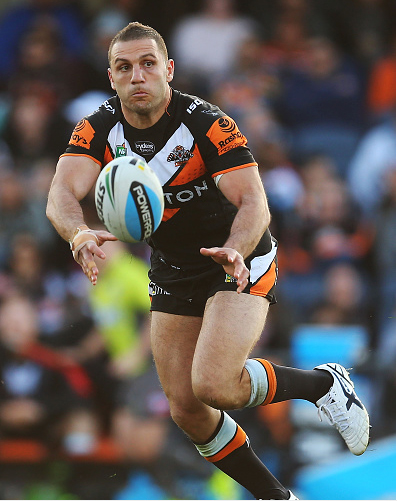What does a contract mean in the NRL?
2 SEPTEMBER 2015
Robbie Farah was “constructively” sacked by Wests Tigers with, according to The Australian, “two years remaining on his multi-million-dollar deal”. Here “constructive” means sacked in fact but not in law - his contract will remain valid but Farah may be playing reserve grade and training as a part-timer.
So what does a contract promise mean in the NRL? Not much, it would seem. More importantly from Farah’s perspective, are the actions of Wests Tigers in breach of contract?
There is more to a legal contract than not ripping up the parchment that records the deal. There are obligations to act in good faith. First, has Farah done anything that would allow his club to terminate his contract? The NRL player contract grants clubs a right to release a player from his contract upon “providing written notice”.
This term does not seem to have been invoked by the club, which, rather, has threatened to keep Farah in the reserves. The rub for the club is that the hooker would be paid his full wage to play in the reserves.
This will not solve the club’s salary cap dilemma, hence the pressure to transfer him. But there is a second dilemma. In failing to release Farah, the club must grant to him all his contractual benefits, stated and implied.
There are a number of “good faith” obligations in a contract, the most important of which is to allow a party to a contract to enjoy the benefits of the contract. In Farah’s case, the benefit is not just the pay cheque but the chance to play in the NRL and from that to represent his state or nation with all the attendant status and acclaim.
Stage actors who are contracted for a leading role have successfully sued after being cast into a supporting role. In some occupations, such as that of a surgeon, there is an obligation to allow the professional to maintain their skill level through actual performance — impossible for Farah if he is playing park rugby league. Paying sit-down money in these circumstances is a breach of contract.
There are also “implied terms” in contracts; terms which are not stated but are so obvious they go without saying. An implied term in a sporting contract requires that the best player be selected to play in the best side. Failing to select the best player has implications of an unreasonable restraint of trade.
Employers have a duty of loyalty and fidelity to their employees. Most egregious is “sacking” Farah to reserve grade towards the conclusion of a back-ended contract. Apart from helping clubs stay below the salary cap in the early years, back-ending ensures a player will be less likely to seek a transfer in the latter years.
The salary arrangements of each player are meant to be confidential It is not the player’s responsibility to check at the time of signing that the club will not put itself into salary cap stress four or five years down the track.
Story by: David Thrope, UTS:Law Senior Lecturer
Photo: By Brendon Thorne/Getty Images
